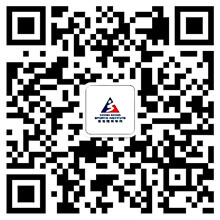News
Coach Forbes-Thomas Shares Olympic-winning Experience in Hong Kong
Coach Forbes-Thomas (left) provides professional training advice to elite rowers Law Hiu-fung (middle) and Lee Ka-man (right) at the demonstration session. Read More
HKSI sports science expert collects blood sample from rower Law Hiu-fung (right) after training which test data, indicating the training intensity, can be a good reference for coaches to adjust the elite training programme. This form part of the scientific training. Read More
Coach Forbes-Thomas (4th from left, back row), HKSI Head Rowing Coach Chris Perry (3rd from left, back row), rowers Law Hiu-fung (2nd from left, front row) and Lee Ka-man (2nd from right, front row), HKSI Sports Science and Sports Medicine Coordinator Raymond So (2nd from left, back row) and other sports science professionals appreciate the opportunity of exchange which would help athletes in preparing the upcoming Hong Kong 2009 East Asian Games and Guangzhou 2010 Asian Games. Read More
|
Athlete success does not only rely on professional coaching but also a complex interplay of multiple factors such as sports science and sports medicine. To have an in-depth understanding of the application of these factors in nurturing high performance athletes, the Hong Kong Sports Institute (HKSI) has invited Miles Forbes-Thomas, Olympic Rowing Coach of Great Britain and coach of the bronze medal winning women's double at the Beijing 2008 Olympics, for an exchange visit at HKSI from 17 to 30 November 2008. He will provide professional training advice to elite rowing athletes and share experience at an Elite Training Seminar on 20 November 2008 at the HKSI. HKSI Head Rowing Coach Chris Perry said, "It is the right time, after the Olympics, to invite professionals to help evaluate our training approach. The rowing training systems in Britain and in Hong Kong are quite similar. Coach Forbes-Thomas visited Hong Kong several times over the past 10 years and has a good understanding of Hong Kong athletes. The British Rowing Team showed great improvement over recent years and won 6 medals at the Beijing 2008 Olympics. I am sure Coach Forbes-Thomas can give us some insight in training for preparing the Hong Kong 2009 East Asian Games and Guangzhou 2010 Asian Games." With a strong background in sport science, Coach Forbes-Thomas shared at the Seminar under the theme of "Scientific training and the integration of sports science and medicine in preparation for the Beijing Olympic Games". Over 60 participants, including coaches, athletes, administrators, sports science and sports medicine professionals of the HKSI and National Sports Associations, attended. "Scientific training is the key to success in today's competitive international sporting environment. It integrates the effort of talented athletes, committed coaches, and professionals in sports biochemistry, biomechanics, nutrition, physiology, psychology, strength and conditioning as well as sports medicine. Coaches have a vital role in ensuring the needs and response of athletes can be clearly reflected to the professional support team who works to its best to assist the athletes in pursuit of sporting excellence. " said Coach Forbes-Thomas at the Seminar. Coach Forbes-Thomas found the HKSI, with all the elements of scientific training put under one roof, an excellent training environment for nurturing top athletes. "Rowing training in some countries may need to move indoors during winter. So I have chosen Hong Kong, with good weather, as a training base for British Rowing athletes in the past," he added. He also praised Hong Kong athletes as very enthusiastic and eager to learn new things. He will look into the rowing training programmes, equipment, techniques and other aspects of training during his two-week exchange visit. "We found the training approach of the British Rowing Team similar to the one in Hong Kong, but more meticulous and in-depth. It would be beneficial for Hong Kong athletes if such approach can be adopted, " said rowers Law Hiu-fung and Lee Ka-man. The HKSI's service delivery model of elite training support is underpinned by a biopsychosocial paradigm which views elite athlete development from a multi-disciplinary perspective within which physical and psychological factors have to be taken into account. As such, key components of the integrated Elite Training Programme at the HKSI include high performance coaching, access to quality training facilities, local and overseas training support, sports science and sports medicine services, strength and conditioning, sports biochemistry, sports biomechanics, sports nutrition, as well as sports physiology and sports psychology. The Elite Training Seminar is organised by the HKSI on a regular basis to facilitate exchange mainly in the latest sports science and medicine development among the HKSI, National Sports Associations and universities. With the approaching of the Hong Kong 2009 East Asian Games and Guangzhou 2010 Asian Games, the HKSI would invite more experienced coaches for exchange visits and arrange different kinds of Elite Training Seminar in order to benefit our athletes in their quest for sporting excellence in these Games.
|
 ID: hksportsinstitute
ID: hksportsinstitute




